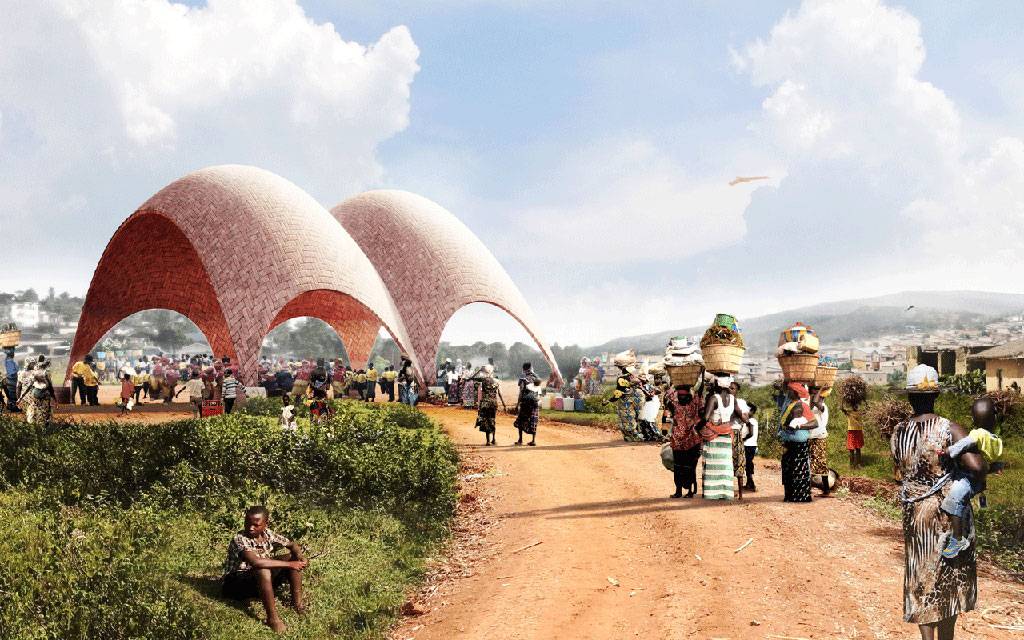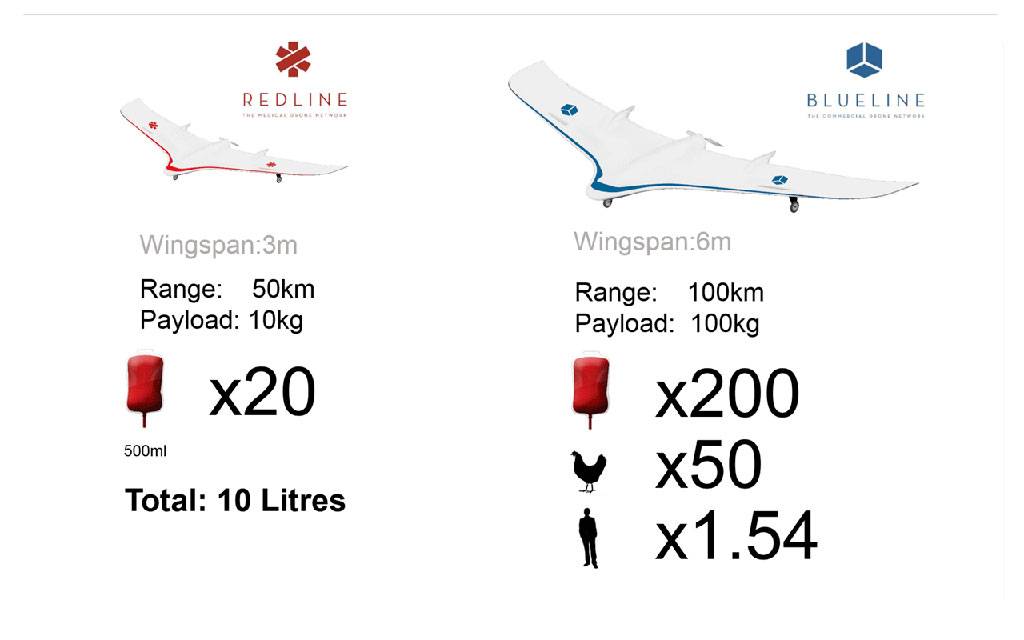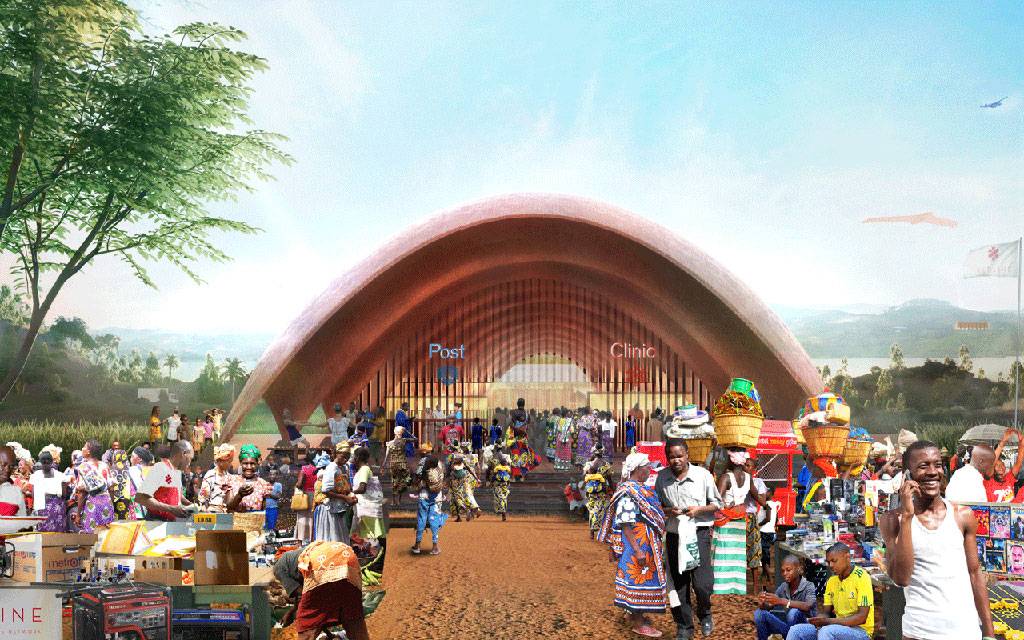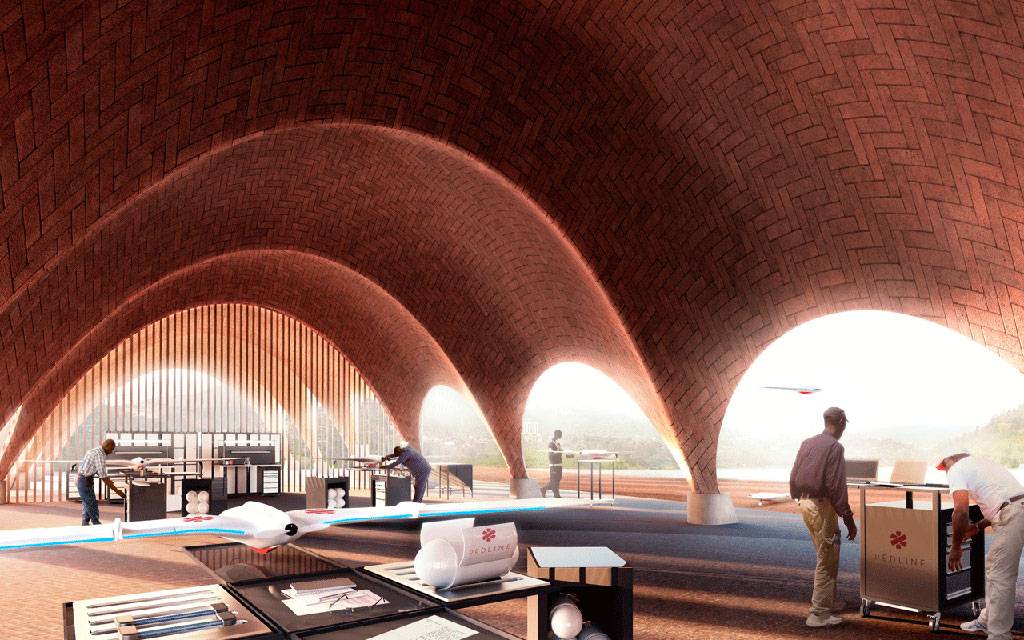But proposals -- including one by eminent British architect Norman Foster -- plan exactly that, to set up "cargo drone routes capable of delivering urgent and precious supplies to remote areas on a massive scale", with the East Africa nation of Rwanda chosen as a test case.
"Specialist drones can carry blood and life-saving supplies over 100 kilometres (60 miles) at minimal cost, providing an affordable alternative that can complement road-based deliveries," the proposal reads.
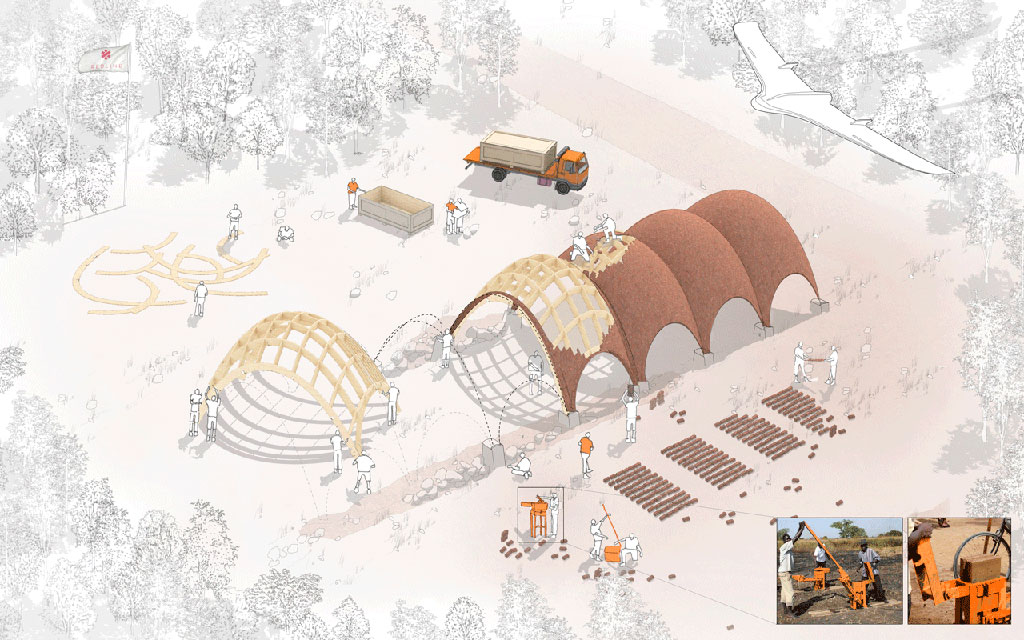
Government efforts have rapidly pushed mobile phone and internet coverage across the landlocked nation, but the rolling landscape of a nation dubbed the "land of a thousand hills" means physical access to some areas is more of a challenge.
Drones with a six-metre (19.5 foot) wingspan, capable of carrying payloads of 100 kilogrammes (220 pounds) are planned to follow by 2025.
"Africa is a continent where the gap between the population and infrastructural growth is increasing exponentially," Foster said at the project launch earlier this month.
"The dearth of terrestrial infrastructure has a direct impact on the ability to deliver life-giving supplies, indeed where something as basic as blood is not always available for timely treatment. We require immediate bold, radical solutions to address this issue," Foster said.
While Rwanda's government has yet to comment on the proposals, people have welcomed the plan.
"The introduction of drones can add to the many solutions we have available to tackle infrastructure challenges in Rwanda," Junior Sabena Mutabazi wrote in a the pro-government New Times newspaper.
Rwanda, small, tightly controlled and where there is only modern infrastructure in key hubs, offers the chance to test case cargo drones before possible expansion into wilder, less developed countries on the continent.
Those developing the project point out that in many parts of Africa, too remote to establish telephone landlines, mobile technology leapfrogged that step, with mobiles now common across the continent even in the remotest of places.
Drones, it is argued, could do the same where a lack of roads has made access tough.
"Cargo drone routes have utility wherever there is a lack of roads," the project proposal said.
"Just as mobile phones dispensed with landlines, cargo drones can transcend geographical barriers such as mountains, lakes, and unnavigable rivers without the need for large-scale physical infrastructure."
Ledgard is convinced cargo drones will be the future, but is also determined the technology will benefit those who need it most.
"But it is not inevitable that these craft or their landing sites will be engineered to be tough and cheap enough to serve poorer communities who can make most use of them," he said.
"Droneport is an attempt to make that happen, and to improve health and economic outcomes in Africa – and beyond."
- AFP
Twitter: http://twitter.com/Erika_Amoako
LinkedIn: contact Erika on LinkedIn
Facebook: Africa Business Review Face Page
Facebook: http://www.facebook.com/AfricaBusinessReview
Website: www. AfricaBusinessReview.net
Website: www.AfricaIntercultural.com
